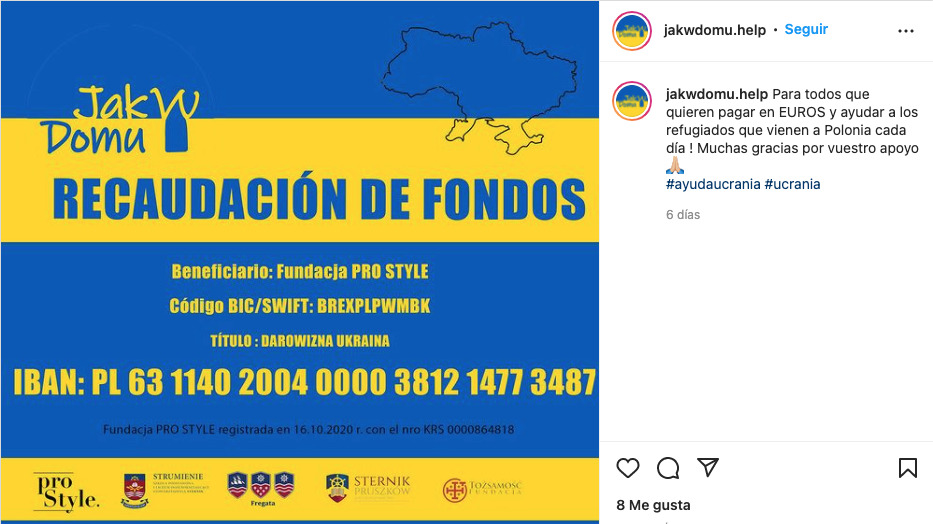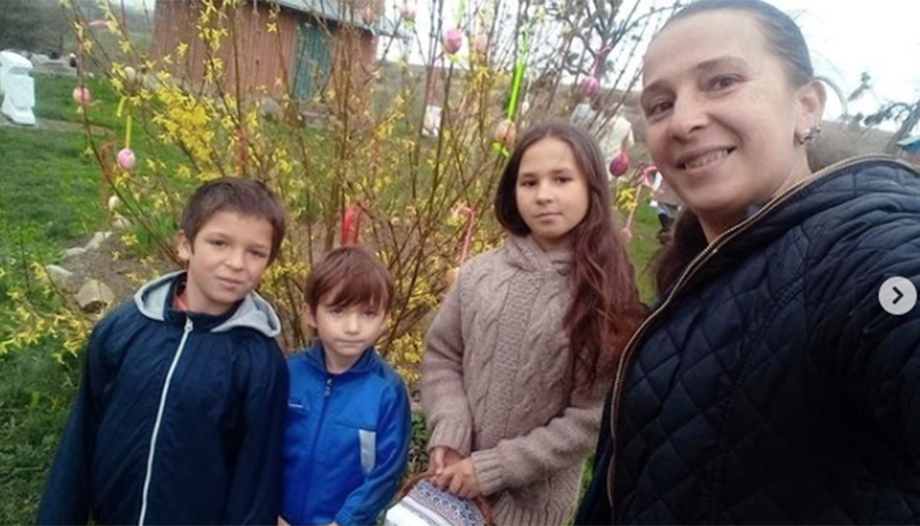Begoña Herrera, a Spaniard, has been living in Poland for half her life. For years, she has been developing projects related to women and fashion with ProStyle. A few weeks ago, the world turned upside down and an entire country was mobilized by the arrival of its Ukrainian neighbors, besieged by Russian army attacks.
More than one million people have already crossed the border into Poland, and even more are expected. A situation that led Begoña, together with a group of friends and collaborators, to use their know how and his contacts to help those fleeing the war.
What began as a call to donate new clothes to bring joy and dignity to the women and girls who crossed the border with a small suitcase, has been joined by other initiatives: transportation, basic products, shelter.
Feeling "at home
Through an account on Instagram. @jakwdomu.help (jakwdomu The project (which in Polish literally means "like at home") is giving an account of the work that, in just a few weeks, has already been carried out with hundreds of people and the projects they want to start up.
Poland is the country that is taking in the most refugees, and it does so without refugee camps. Once they arrive on Polish territory, they are housed in transport stations, industrial buildings, school halls and residences. Some of them have relatives and acquaintances there or elsewhere in Europe and spend only a few hours in these improvised shelters.
Countries such as Spain, Italy and France already receive groups of refugees through civil organizations, NGOs and religious organizations. However, many of them still have a long time ahead of them on Polish soil: "That is why it is necessary to set up projects with which they can get ahead, at least at the beginning," Begoña points out. In fact, the authorities already estimate that a high percentage of those who have crossed the border will not return to their places of origin for several years. This, as Begoña points out, "means that we have to think in the long term, what will happen to these people in a few months or a few years".

Women and children
A very high percentage of those seeking refuge in Poland are women and children, and for this reason, the projects that Begoña and her group of collaborators want to implement have these two groups as their main target groups. "In the next few weeks we are going to start groups for mothers and children. For them, we are going to start with some sessions on handicrafts, accessories and sewing, products that they can then sell online and that will allow them to have their own income. For two things, first of all to recover their lost dignity: they have abandoned their homes and their jobs and now they can't do anything; on the other hand, because their currency is worthless, the money they would have been able to get from there has been greatly devalued."
Another of the projects comes from the hand and help of Santi, the illustrator known as SAMLOThe project will create groups of children who have not yet been able to go to school, in order to carry out artistic workshops with them, which will help them develop their imagination. "When they arrive, the only thing they have is a cell phone or tablet and they spend hours glued to the screens", says Begoña, "thanks to Santi and his mobilization, he comes loaded with materials for the work with these children".
A girl who is here now has two PhDs, one of them in Polish Philology; a few weeks ago she was teaching at the University, today she is a refugee.
Begoña Herrera
The idea is, above all, to integrate those who find themselves in a situation of complete disengagement. "We see that, thank God, in the centers people are welcomed, they can sleep under a roof, but there is no positive climate. People are beaten up inside because of the war. There are many people together in one place, but they are not united. The war provokes two completely opposite reactions: that of closing in on oneself or that of giving oneself to others, and we have to give the second one a chance".
Many of the people who have crossed the borderThey even come with their laptops, with the idea of working from wherever they can, but their companies no longer exist. For example, a girl who is here now. She has two doctorates, one of them in Polish Philology; a few weeks ago she was teaching at the University, today she is a refugee. These are people who have suddenly lost their identity. We have to help them find their dignity". For this defense of dignity is why, for example, they ask for donations of new clothes, "which we collect and think about who we can give personally, so that the girl who receives, for example, a coat, feels herself, likes it, does not feel like a refugee," says Begoña. In this sense, she is grateful for the donation that Two Thirds, a brand of ecological textile manufacturing, has sent them on this occasion.
At the moment, they have the collaboration of many people. Several schools promoted by the Sternik Association have joined this project by providing storage facilities or the work of many volunteers.
"We have to start thinking about the future," Begoña stresses, about what is going to become of all these people, how they can start a new life, with a job, with a responsibility... to become themselves again. Receiving the first few days is vital, but, at some point, we all need to know that we are valuable, useful".
A task that will require the involvement of the whole of society, not just Polish society, and has only just begun.








